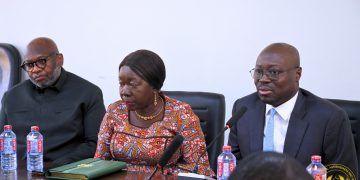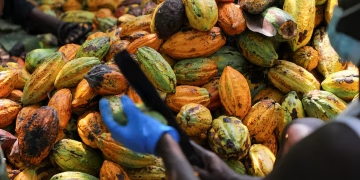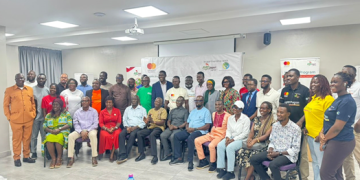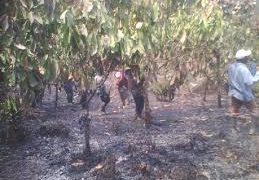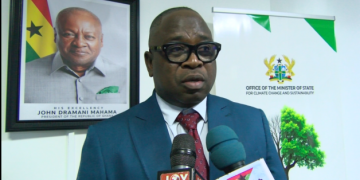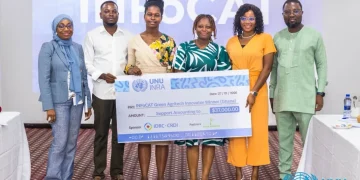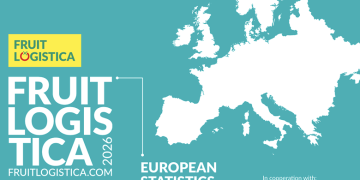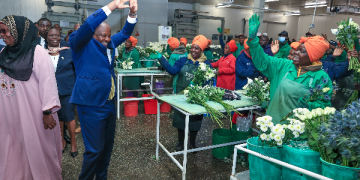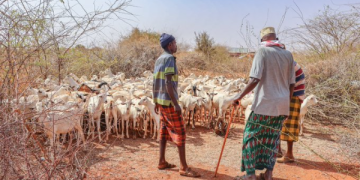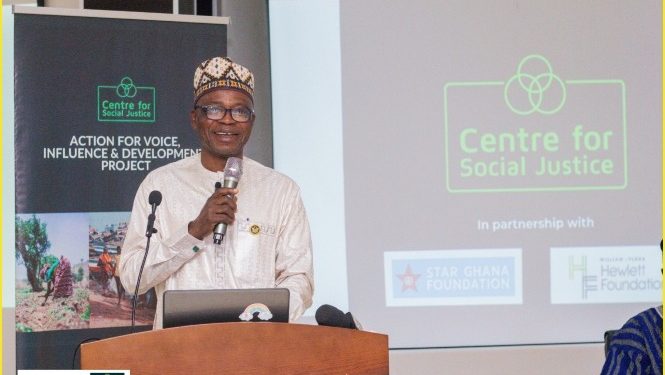The Northern Region Minister, Hon. Ali Adolf John, has called for stronger policy interventions and innovative financial solutions to support informal sector workers.
According to the minister, financial inclusion has become a “fundamental right that unlocks opportunities everywhere.”
The Minister made the remarks at the second regional forum on Financial Inclusion and Social Protection for Informal Sector Workers. The forum was organised by the Center for Social Justice (CSJ) in partnership with the STAR-Ghana Foundation and the William & Flora Hewlett Foundation.
The event, held in Tamale on Thursday, October 16, brought together smallholder farmers, market women, financial institutions, social protection agencies, and civil society groups from across the Northern and Upper East regions.
Financial inclusion is a right, not a privilege
In his keynote address, Hon. Ali Adolf John commended the Centre for Social Justice for championing the cause of Ghana’s informal workforce, which, he noted, accounts for between 80 and 90 percent of the national labour force.
He stressed that while informal workers remain the backbone of Ghana’s economy, they continue to face major barriers to accessing financial services, savings platforms, and insurance products.
“The informal sector workers who make up a substantial portion of the workforce often face barriers to accessing essential financial services, which limits their ability to grow, invest, and plan for the future,” the Minister said. “If we are serious about boosting our local economies, we must make it easier for traders, artisans, and farmers to access finance and social protection programs that safeguard their rights and livelihoods.”
He added that his office would continue to collaborate with CSJ and development partners to implement policies that create equal financial opportunities for all, regardless of social or economic status.
Building on the Kumasi momentum
Thursday’s forum at the Mariam Hotel in Tamale was built on the success of the inaugural event held in Kumasi in August. That event also brought together farmers, traders, regulators, and policymakers to discuss barriers to financial access.
The Northern forum sought to take the conversation further focusing on co-creating solutions that make financial services more inclusive, affordable, and responsive to Ghana’s growing informal economy.
Delivering a statement on behalf of the CSJ Executive Director, Professor Alexander Manu, CSJ Finance Fellow, Haruna Alhassan, stated that financial inclusion and social protection are key to poverty reduction, especially in northern Ghana.
Data reveals urgent need
According to CSJ’s presentation, the informal sector provides nearly four out of every five jobs in Ghana, yet contributes only about a quarter of the country’s GDP a productivity gap that reflects limited access to credit, insurance, and pensions.
In Tamale alone, the number of business establishments grew from 9,920 in 2014 to 27,903 in 2024, reflecting strong entrepreneurial energy. However, poverty levels remain stubbornly high: Savannah (49.5%), North East (48.1%), Upper East (43%), and Northern (38.4%), compared to the national rate of 24.3%.
“Employment and living conditions are the largest contributors to these deprivations,” Mr. Alhassan said. “That is exactly why financial inclusion and social protection matter here. When finance is accessible and protection dependable, livelihoods become resilient and communities thrive.”
A roadmap for inclusion
The Tamale forum aimed to produce a clear roadmap with actionable steps for stakeholders — including banks, fintechs, the National Pensions Regulatory Authority (NPRA), and the National Insurance Commission (NIC) — to design and pilot pro-poor financial products such as micro-insurance, working capital support, and input credit schemes tailored to small traders and farmers.
Participants also called for simplified onboarding to pension and health insurance schemes, fairer claims processes, and accessible grievance redress mechanisms for informal workers.
Partnership for progress
The Minister praised CSJ, STAR-Ghana Foundation, and the event’s partners for their commitment to grassroots empowerment and urged other regions to replicate the model.
“This engagement is significant because it focuses on cooperation,” he said. “When public, private, and civil society actors work together, we can make inclusive finance a reality for the market women, farmers, and artisans who sustain our economy.”
The Centre for Social Justice (CSJ) is a left-of-center policy think tank dedicated to advancing fairness, opportunity, and accountability in Ghana’s development agenda. Through its regional dialogues, CSJ aims to bridge policy gaps, amplify community voices, and push for reforms that bring Ghana’s informal economy into the mainstream financial system.
The next regional dialogue under the initiative is expected to move to Accra in early 2026, continuing the push toward a national framework for inclusive finance and social protection.















